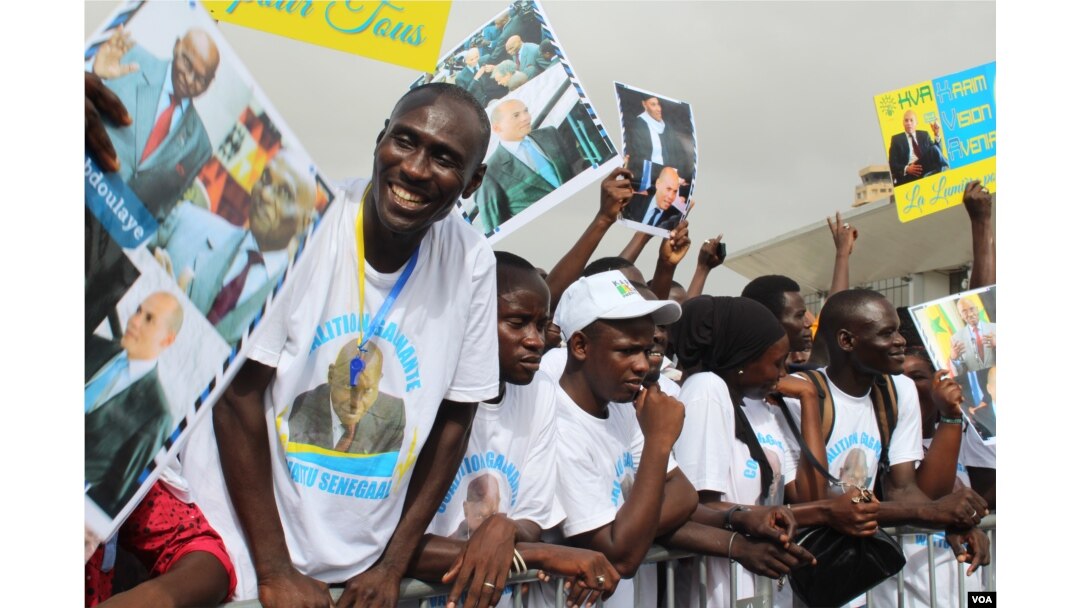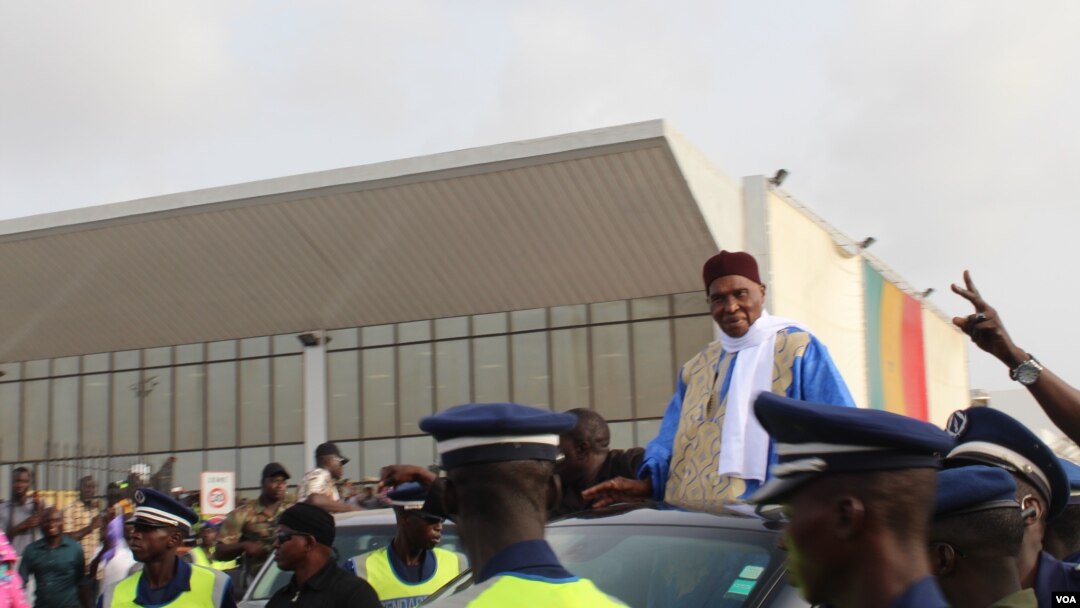Senegal’s former president, Abdoulaye Wade, is making a comeback. The 91-year-old politician returned to Senegal this week for the second time since his 2012 defeat, and will be on the campaign trail for the next two weeks [until July 28], traveling around the country to boost his party’s chances in the legislative elections at the end of this month.
Thousands gathered at Dakar’s international airport to welcome the former leader.
“Gorgui is great,” chanted the crowds as Wade made his way through the city. Gorgui is a term of endearment, meaning "old man" in the Wolof language.
One supporter, Cheikh Baye Mbour, says, “You know today is a work day but everyone is here and more people will come.”

Supporters wait for former President Abdoulaye Wade at Dakar international airport, Dakar, Senegal, July 10, 2017. (S. Christensen/VOA)
Wade's caravan weaved its way to the headquarters of Senegal Democratic Party, or PDS.
Wade was a popular opposition figure in Senegal when he won the presidency in 2000; however, he lost his controversial bid for a third term in 2012. Wade conceded defeat to President Macky Sall and retired to France.
At the PDS headquarters, Wade addressed the cheering crowds in Wolof. He remains head of the party.
“I heard Senegal is suffering,” he said, “and this hurts me. If no one solves this, I will take care of it. My party and other parties have formed a force that will make Macky Sall leave,” he added.
The PDS is hoping for a comeback with the July 30 parliamentary elections.
There are 165 seats to be filled in Senegal’s National Assembly. Political parties and coalitions put forward lists of candidates for the regional and national levels. Voters cast their ballots by party, not for individual candidates. Wade tops the list for the main opposition coalition.
A young woman holds up pictures of Abdoulaye Wade and his son Karim as she waits for the former President at Dakar international airport, Dakar, Senegal, July 10, 2017. (S. Christensen/VOA)
The former president’s supporters, however, do not expect him to actually take a seat in parliament.
Binetou Fofana is a member of the ‘Mouvement Karim President’, which is advocating for Wade’s son, Karim, to become Senegal’s next leader in 2019.
She says Abdoulaye Wade has only returned to campaign for his party, and she does not believe he will sit at the National Assembly even if his ‘Wattu Senegal’ coalition wins enough seats.
Karim Wade received a presidential pardon last year after serving half of a three-year jail sentence on a corruption conviction. He remains abroad where he has lived since his release.
Political analyst Ali Ndiaye says strengthening the PDS is a way for the elder Wade to pave the way for his son.
Ndiaye says the results of these parliamentary elections will be a measure of the current president’s popularity. He says if the ruling coalition does not get a majority, “the opposition will conclude that the president can be defeated in 2019.”
Ndiaye says the key battlegrounds for the legislatives are Dakar, its suburbs and the religious city of Touba, which are among the first places Abdoulaye Wade is visiting.
This year, 47 political parties and coalitions have put forward lists of candidates for the National Assembly. This includes the ‘Manko Taxawu Senegal’ coalition, whose list is headed by Dakar Mayor Khalifa Sall, jailed in March for embezzlement.
The number of lists is unprecedented, but, the ruling coalition faces two main rivals: Khalifa Sall’s coalition and that of former President Wade. The presidential coalition, led by the current prime minister, Mouhamed Boun Abdallah Dionne, has not made any official comment on Wade's return.


